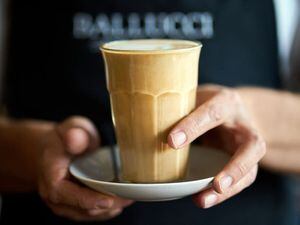Switching to decaf in care homes could save NHS £85 million per year, trial says
Decaffeinated drinks have been shown to reduce bladder and bowel urgency in those with an overactive bladder or incontinence.

Switching care home residents to decaffeinated hot drinks could save the NHS up to £85 million per year in toileting-related falls, a new study has found.
In what is said to be a first-of-its-kind trial, residents in eight residential care homes were switched to decaf over a period of six months.
According to the joint report, published on Tuesday by Care England, Stow Healthcare and University Hospitals of Leicester NHS Trust (UHL), the change resulted in a 35% reduction in toileting-related falls.
If the trial were to be scaled up across the sector, the report says thousands of falls would be prevented and the NHS could save as much as £85 million per year.
Decaffeinated drinks have been shown to reduce bladder and bowel urgency in those with an overactive bladder or incontinence.
Within three months, toileting-related falls in the hospital were down by 30%.
Research says falls are the most common cause of injury-related deaths in people over the age of 75.
People living in care homes are three times more likely to fall than those living at home and they are generally more frail, less mobile and have a higher prevalence of incontinence than the general population.
These figures prompted Care England and Stow Healthcare to trial the initiative in a residential care home setting.
Between June and November 2023, about 300 residents across Stow Healthcare’s eight care homes were given the chance to blind taste-test caffeinated and decaffeinated drinks.
Across the trial period, falls associated with care home residents going to the toilet dropped by 35%.
Professor Martin Green, chief executive at Care England, urged care providers across the country to “give decaf a go”.
He said: “Falls have a detrimental impact on thousands of older people every year, not to mention the knock-on cost to the NHS.
“When we first heard about the results of UHL’s decaf trial in a hospital setting, the potential benefits for social care were immediately clear.
“For such a simple, cost-neutral solution to have such a profound impact is extraordinary. With a huge national focus on reducing pressure on the NHS, this pioneering trial demonstrates that simple solutions can help address enormous challenges.
“Care England is delighted to have been involved in this project and would encourage care providers across the country to give decaf a go!”





